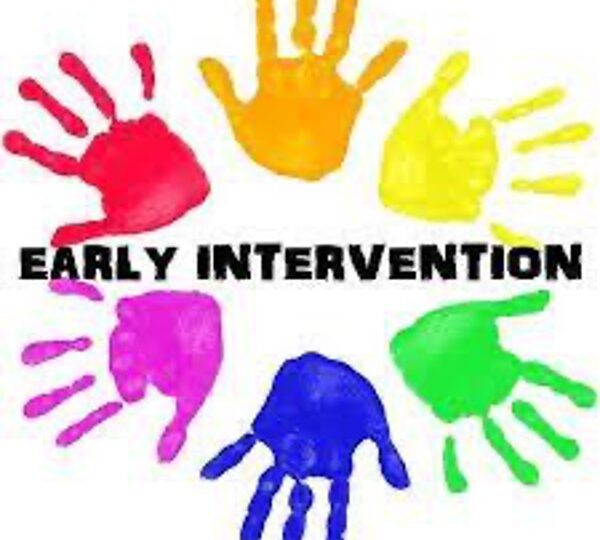Childhood is a critical developmental period, setting the foundation for physical, emotional, social, and cognitive growth. If early developmental issues are properly addressed, the benefits can be seen in the child’s ability in various areas of life. The human brain has the most plasticity in the early years of life, making it more flexible to adapt neural circuits, to support healthier behaviour patterns. The best and most important steps to reduce the long-term harmful effects of developmental issues are early identification and intervention. Addressing concerns early allows for interventions that can significantly improve outcomes for children and their families.
What Are Early Developmental Issues?
Developmental issues are delays or atypical progress in areas such as language, motor skills, emotional regulation, and social behaviour. Developmental issues may be indicated when a child struggles to reach milestones compared to their peers. Early developmental issues range from mild delays to more severe conditions that require specialized interventions. These delays can significantly impact future development as a child may fall behind peers and, without proper intervention, stay behind. These delays can affect academic performance, social relationships, and mental health. The effects of developmental disorders extend beyond the individual, with many families finding themselves dealing with unexpected stresses that can be emotionally and financially challenging. Fortunately, when developmental delays or disorders are detected early, intervention can greatly improve a child’s development and overall quality of life – for all family members.
Common developmental issues include:
- Autism Spectrum Disorder (ASD)
- Attention-Deficit/Hyperactivity Disorder (ADHD)
- Learning Disabilities
- Speech and Language Delays
- Motor Skill Deficits
Autism Spectrum Disorder (ASD)
Autism Spectrum Disorder (ASD) is a complex neurodevelopmental condition that affects individuals and is exhibited in diverse ways. ASD influences the way a child communicates, experiences the world, and interacts with others. ASD is often characterized by differences and difficulties with communication, differential processing of sensory information, intense and limited interests, and repetitive behaviours. Symptoms can appear as early as 12 months of age, but typically become more noticeable around the age of three. Children with ASD often struggle with eye contact, understanding social cues, and engaging in reciprocal conversations.
Due to challenges with communication, children with ASD often face difficulties in school, particularly with social interactions and adapting to change. Raising a child with ASD requires specialized care, and many families need access to therapy and educational support, increasing emotional and financial stress.
Early diagnosis is essential for effective intervention, with professionals agreeing that the earlier, the better. Assessment for ASD typically involves observing the child’s behaviour, communication skills, and social interactions. Intervention strategies include Applied Behaviour Analysis (ABA), speech therapy, and social skills programs, all of which have proven to be significantly effective. Early intervention is crucial for improving communication and social skills while reducing challenging behaviours.
Attention-Deficit/Hyperactivity Disorder (ADHD)
Attention-Deficit/Hyperactivity Disorder (ADHD) is a neurodevelopmental disorder characterized by executive dysfunction and is among the most prevalent disorders affecting children. Common symptoms of ADHD include inattention, hyperactivity, and impulsivity. Children with ADHD may have difficulty staying focused and organized, following instructions, and remaining still. They often struggle with paying attention in class and completing tasks and assignments, which impacts their academic performance. Additionally, children’s social relationships can be affected by impulsive behaviours or challenges in adhering to social norms. Families of children with ADHD frequently experience frustration and stress when addressing behavioural aspects that other families may not encounter. Without appropriate intervention, certain issues can persist into adolescence and adulthood, impacting the child’s long-term success in school and beyond.
ADHD is assessed and diagnosed through behavioural assessments, including teacher and parent questionnaires and observations. Early intervention can help children with ADHD develop effective strategies to improve attention and manage hyperactivity. Interventions can include behavioural therapy, parent training, and, in some cases, medication. Classroom accommodations, such as extended test times or a designated quiet space to work, can further help children with ADHD succeed academically.
Learning Disabilities
Learning disabilities refer to difficulties in specific areas of learning, such as reading (dyslexia), writing (dysgraphia), or math (dyscalculia). Learning disabilities are often the result of a condition in one’s brain causing them to process certain information atypically. Children with learning disabilities often struggle significantly in one area but perform well in other academic areas. Children with learning disabilities often experience frustration and low self-esteem as they struggle in school in comparison to their peers. Families of children with learning disabilities often experience increased stress as they advocate for appropriate accommodations and support.
Learning disabilities are assessed and diagnosed through academic assessments, psychological testing, and interviews with parents and teachers. Interventions may include specialized tutoring, individualized education programs (IEPs), and assistive technologies within the classroom. Early intervention is key to helping children with learning disabilities develop strategies to succeed in school and boost their confidence.
The Lifelong Impact of Early Intervention
Early identification and intervention for developmental issues are critical in shaping a child’s future development. With the right support, children with developmental disabilities such as autism, ADHD, and learning disabilities can achieve their full potential. Families who recognize the importance of early intervention and actively seek out resources can help their children thrive academically, socially, and emotionally. Early support benefits the child and fosters a stronger family dynamic, alleviating stress and promoting well-being.
The key for parents and caregivers is understanding that developmental delays are not necessarily permanent and that early action can make a significant difference. By recognizing the signs early and seeking appropriate support, we can ensure that children receive the help they need to grow into confident, capable adults. The benefits of early intervention extend beyond childhood, benefitting the entire family and fostering a more inclusive, supportive environment for all.
Support Services at Qxplore
If you are concerned about your child’s developmental progress, early identification and intervention are essential. At Quinte Assessment and Treatment Group, we offer a wide range of services tailored to your child’s needs. We provide psychoeducational assessments for children and adults. Our Autism and Behaviour Program features in-depth assessments and proven intervention strategies, including Intensive Behavioural Intervention (IBI) and Applied Behaviour Analysis (ABA). Visit www.qxplore.com to learn more or contact us by email at reception@qxplore.com, or by phone at 613-966-4262.
References:
Bélanger, S. A., Andrews, D., Gray, C., & Korczak, D. (2024). ADHD in Children and Youth: Part 1—Etiology, Diagnosis, and Comorbidity | Canadian Paediatric Society. Canadian Paediatric Society. https://cps.ca/documents/position/adhd-etiology-diagnosis-and-comorbidity
Centers for Disease Control and Prevention. (2024). Learn the signs. act early. https://www.cdc.gov/ncbddd/actearly/whyActEarly.html
Cohen-Silver, J., Heuvel, M. V. D., Freeman, S., Ogilvie, J., & Chobotuk, T. (2024). Evaluating and caring for children with a suspected learning disorder in community practice | Canadian Paediatric Society. Canadian Paediatric Society. https://cps.ca/documents/position/learning-disorder#:~:text=SLDs%20affect%205%25%20to%2010,thinking%2C%20remembering%2C%20or%20learning.
Eunice Kennedy Shriver National Institute of Child Health and Development. (2021). Early intervention for autism. National Institutes of Health. https://www.nichd.nih.gov/health/topics/autism/conditioninfo/treatments/early-intervention
Government of Ontario. (2022). Early intervention and special needs services | Special education in Ontario Kindergarten to Grade 12 – Policy and resource guide. ontario.ca. https://www.ontario.ca/document/special-education-ontario-policy-and-resource-guide-kindergarten-grade-12/early
NYU Langone Health. (2024). Types of developmental delays in children. https://nyulangone.org/conditions/developmental-delays-in-children/types
Public Health Agency of Canada. (2019). Autism Spectrum Disorder: Highlights from the 2019 Canadian Health Survey on Children and Youth. In Government of Canada. https://www.canada.ca/en/public-health/services/publications/diseases-conditions/autism-spectrum-disorder-canadian-health-survey-children-youth-2019.html

